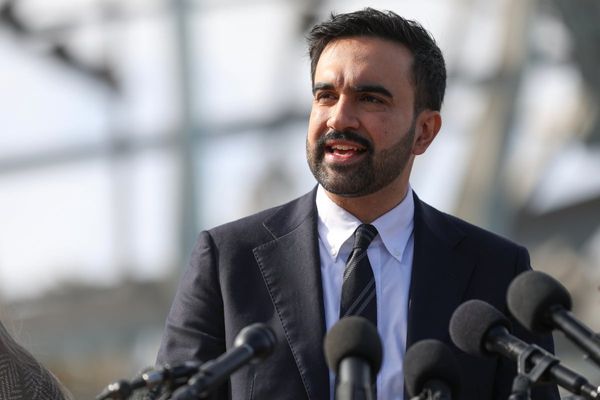
Rarely are British voters united by one issue, but Labour MPs returning to Westminster after the local election campaign this month all reported a single policy dominating all others: cuts to the winter fuel allowance.
“It is all people wanted to talk about on the doorstep,” said one. “Some were upset about the coming cuts to disability benefits, some were exercised by immigration. But everyone was angry about winter fuel payments.”
And so when Keir Starmer confirmed on Wednesday his government would change the threshold at which the cuts bite, it should not have come as a surprise.
The U-turn, however, came after repeated claims by cabinet ministers that such a move would be unaffordable, and flat-out denials by Downing Street that it was on the cards – even after the Guardian revealed it was.
Rachel Reeves, the chancellor, announced the cuts last summer as a solution to what she said was a £22bn hole in the government’s finances left by the last government.
Supporters say she had no option but to cut winter fuel payments because she needed savings that would be realised in that financial year, drastically limiting her options.
Critics, however, say she too quickly accepted the Treasury argument that winter fuel payments were unsustainable – an argument that previous chancellors, including George Osborne, the architect of austerity, have dismissed.
“The decision was taken by the Treasury,” said one former government aide. “By the time Downing Street saw it, it had already been factored into the forecasts and it was too late to change it.”
For the best part of the next 12 months, ministers continued to insist they had no choice but to leave the cuts in place, even amid warnings they would lead to increased numbers of pensioners dying over the winter.
Senior Labour ministers warned No 10 privately that the policy was an electoral disaster. “It comes up on the doorstep all the time. Winter fuel will lose us the next election, it was a terrible mistake. But it’s probably too late for a U-turn now,” one cabinet minister lamented.
Other Labour figures were more direct. Eluned Morgan, the Welsh first minister, said she was “losing patience” with UK Labour as she urged the government to think again.
A group of MPs from “red wall” constituencies issued a joint statement. “Responding to the issues raised by our constituents, including on winter fuel, isn’t weak – it takes us to a position of strength,” it said.
With Labour’s poll rating tumbling, and backbenchers furious not only about the winter fuel cuts but also planned cuts to disability benefits, Downing Street felt it had to move.
Not only were reports coming back from the local election campaign about anger on the doorstep, but Labour whips also wanted to offer backbenchers something before a vote next month to approve the wider package of benefit cuts.
Officials commissioned polls and conducted focus groups on how a U-turn would be received by voters. Cabinet ministers such as the health secretary, Wes Streeting, admitted the government would have to find a way to respond to voters’ anger.
The Guardian revealed more than two weeks ago that No 10 had begun discussing a reversal, and later that it was conducting research on how that might go down with the public, but Downing Street mounted an operation to shut down speculation.
The prime minister’s official spokesperson continued to deny that it was being planned or would ever happen, telling reporters there would be “no change” despite political and public pressure to do so.
Some officials now say they felt they had to deny the reports until a decision was made in order to protect the chancellor’s authority. Others suggest that while there had been political discussions, the policy machine had not yet got up and running, and the denials softened once it was.
Eventually, Starmer accepted a change would have to be made, even if it damaged his chancellor and opened the door to further U-turns. But his announcement in the Commons on Wednesday left many details unclear.
The government will not say where the threshold might now be set, nor how much the policy might cost or where the money will be found. They will not say for certain whether they could eventually make a similar move on the two-child benefit cap – though officials point out that policy is much more popular with the public.
The biggest uncertainty is timing. Starmer said on Wednesday the full policy would be announced at this autumn’s budget, but officials would not say whether it would be implemented in time for this winter.
Pensioners earning slightly over £11,500 a year therefore face an anxious wait until the budget – and ministers face a barrage of further questions in the months to come.







